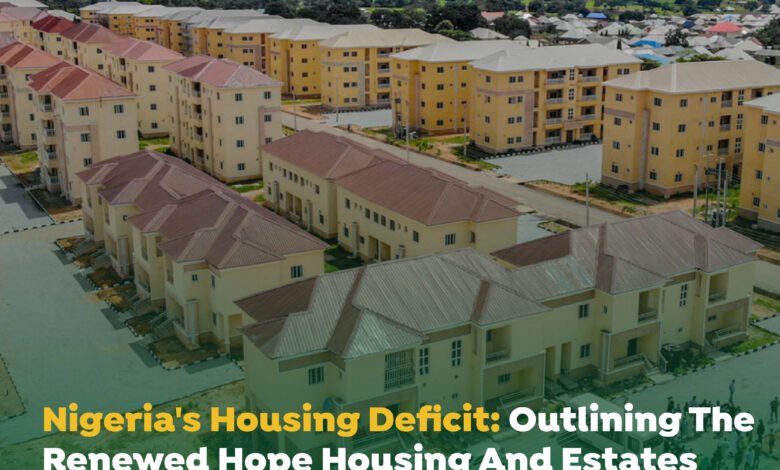Nigeria’s Housing Deficit: Outlining the Renewed Hope Housing and Estates Portal Interventions

Nigeria’s housing deficit has reached a critical point, with an estimated 28 million units needed to address the current shortfall. The recent discovery of makeshift apartments under Lagos bridges, where tenants pay N250,000 annually sparked and outrage and highlighted the urgency of the situation.
In response, the Lagos state government, backed by a combined team of security operatives, stormed the place, demolished the makeshifts, and arrested the perpetrators. For a brief moment, there was a sense of relief.
‘A deeper look at the problem’
However, the news revealed a more profound issue in the country’s housing deficit crisis, a dire situation that has garnered significant attention when viewed from a statistical perspective. Segun Oshundiaro, the CEO of Arc-View Investments Limited, penned a scathing article that depicted a troubling situation: available data indicates that Nigeria’s housing deficit stood at 7 million units in 1991, rising to 12 million in 2007, 14 million in 2010, 20 million in 2018, and an estimated 28 million units in 2023. Successive governments have intervened, but none has been able to nip the crisis in the bud once and for all. Experts, in other words, always look at the directions of the new government to see whether it is determined to address some of the root causes of the challenges or not.
‘ Experts Thoughts ‘
Bayo Lawal, the Co-Founder of Dukiya Limited, proposed several strategies to address the crisis of affordable housing, including restructuring the mortgage system, reviewing the property registration process, establishing locally manufactured building materials, and involving the private sector in providing loans and subsidies to potential builders.
Segun Oshundiaro believes that a review of existing land laws, ease of land title processing, activation of a vibrant and functional mortgage culture, and seeing housing as a social investment will definitely help resolve the problems. In a sense, the two unanimously agreed on the pivotal role of government in stemming the tide while positioning the sector for success and prosperity.
‘Housing and Real Estates, a renewed hope’
On February 8, 2024, President Bola Tinubu launched the nationwide renewed hope cities and Estates program. The aim was to bridge the housing gap and make home ownership accessible to average Nigerians. The program began with the construction of a 3,112-unit Renewed Hope City in Karsana, Abuja, which officially kicked off in February. Speaking during the launch, the President emphasized the importance of housing to men, describing it as a fundamental right and the responsibility of the government to its citizens.
“Under phase one,” Arc. Ahmed Musa Dangiwa assured the President during the launch, “We plan to deliver a total of 50,000 housing units across Nigeria. “The cities will have 1,000 housing units per site in one location in each of the six geopolitical zones of the country and FCT, while the estates will have 500 housing units per site in the remaining thirty (30) states,” he stated.
‘Online portal to streamline home sales’
Experts have long called for the integration and adoption of digital tools to address the country’s housing deficit. In particular, experts noted that this will not only ensure transparency but will ultimately fast-track the process while reducing corruption and administrative bottlenecks to a minimum. To that effect, the federal government recently launched an online portal to streamline the marketing and sales of houses under the Renewed Hope Cities and Estates Programme.
The minister of housing and urban development, Arc. Ahmed Musa Dangiwa, who unveiled the portal, said the platform is a fulfillment of the promise to break all barriers to homeownership for Nigerians, as well as to facilitate and promote the creation of technology systems and private sector-led initiatives that will make it simpler, easier, and more convenient for Nigerians to own their homes.
While experts have acknowledged the current government efforts to address the housing deficits, they are particularly concerned about other fundamental and underlying issues that have made the deficit festered to its present alarming state.





